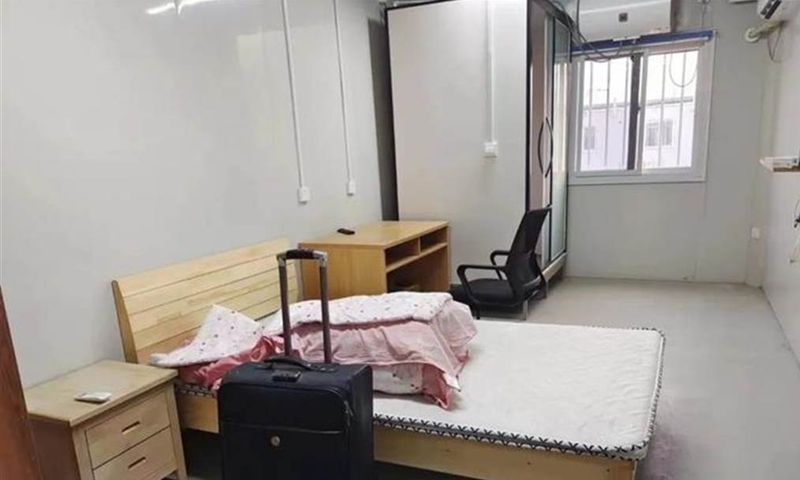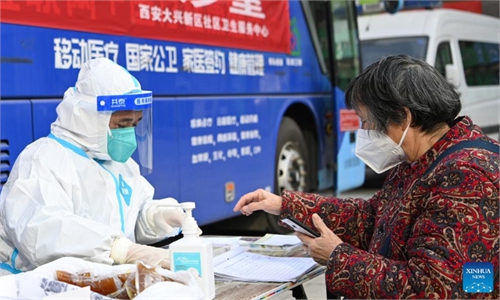
Photo: Screenshot from website
Multiple Chinese cities have started to explore the transformation of their unused mobile cabin hospitals, also called makeshift Fangcang hospitals, into other facilities such as apartments, temporary fever clinics or for other uses. The Hong Kong Special Administrative Region is planning to convert one of its Fangcang hospitals into a youth hostel, according to media reports on Wednesday.
The four-story Kai Tak Fangcang hospital in Hong Kong has about 3,000 rooms with lifts, and each unit has an area of about 193 square feet (7.9 square meters). The rooms have their own toilets, TV sets and electric steaming stoves, and some units even enjoy great sea views, local media outlet Sing Tao Daily reported.
Jinan in East China's Shandong Province has already remolded one of its Fangcang hospitals into accommodation for local high skilled workers. Located in the city's high-tech district, the newly transformed apartment block will minimize the temporary accommodation shortage for employees working in the district.
According to videos on social media platforms, the apartments are equipped with a range of amenities, such as TV sets, air conditioners, beds, closets, desks, making them ready for tenants to move in.
The block covers an area of 56,000 square meters. A total of 650 rooms were renovated in the first phase of conversion, and facilities will be adjusted in later phases and additional rooms will be added according to the needs of enterprises in the district, according to reports.
Professional property management companies have assumed control of the apartment block to conduct standardized operation and management.
Netizens on China's Twitter-like social media platform Weibo praised the transformation and suggested that after renovating the Fangcang hospitals into apartments, more jobs need to be done to create a safe, warm and comfortable living environment for tenants.
During the about three years of pandemic prevention, China built many Fangcang hospitals as a flexible tool to assist with isolation, triage, basic medical care, frequent monitoring, rapid referral, and essential living needs. After China optimized its COVID-19 response in December 2022, most of the Fangcang hospitals have been left unused.
Global Times

